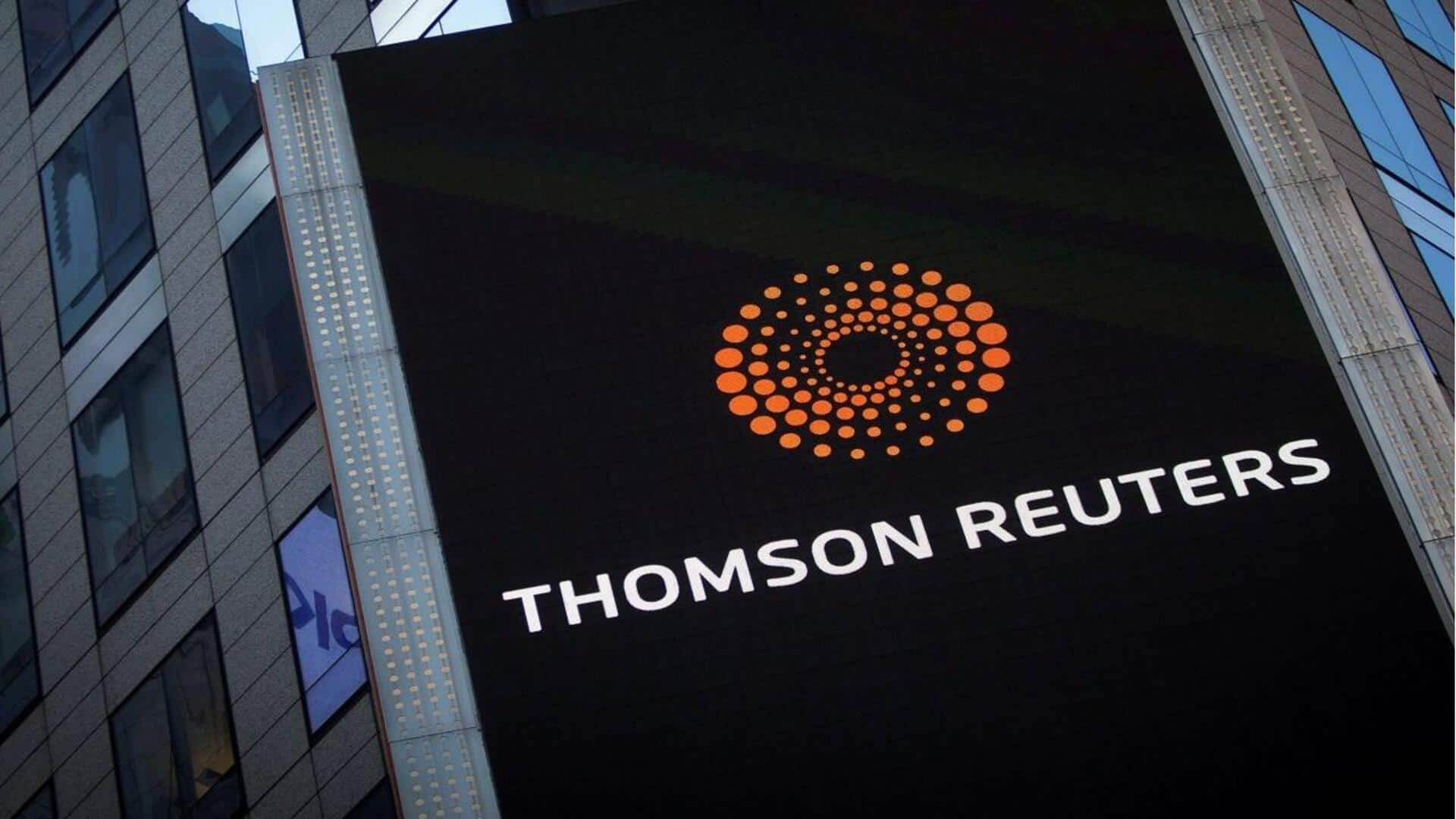
Thomson Reuters wins AI copyright lawsuit—judge quashes free use defense
What's the story
Global media and technology giant Thomson Reuters has won the first major AI copyright case in the US. The lawsuit was filed against legal AI start-up Ross Intelligence in 2020. Thomson Reuters alleged that Ross Intelligence illegally copied materials from its legal research firm Westlaw. In a ruling today, Judge Stephanos Bibas of the US District Court of Delaware ruled that Ross Intelligence had violated Thomson Reuters's copyright.
Case details
Judge dismisses Ross Intelligence's defenses
In his summary judgment, Judge Bibas dismissed all defenses raised by Ross Intelligence. He wrote, "None of Ross's possible defenses holds water. I reject them all." This ruling is a major development in the ongoing legal battles over the use of copyrighted material by AI companies. The disputes have been sparked by the rapid progress in generative AI technology and its widespread use on copyrighted works like books, films, visual artwork, and websites.
Legal implications
Fair use doctrine under scrutiny in AI copyright cases
The fair use doctrine, a key defense strategy for AI companies facing allegations of illegal use of copyrighted materials, was also reviewed in this case. On this front, Judge Bibas ruled in favor of Thomson Reuters. He found that Ross Intelligence had intended to compete with Westlaw by creating a market substitute, thus infringing the copyright. This ruling could have far-reaching implications for other ongoing lawsuits related to AI and copyright infringement across the globe.
Company response
Thomson Reuters hails court's decision
Jeffrey McCoy, a spokesperson for Thomson Reuters, was happy with the court's decision. He said, "We are pleased that the court granted summary judgment in our favor and concluded that Westlaw's editorial content created and maintained by our attorney editors is protected by copyright and cannot be used without our consent." McCoy also stressed that the replication of their content wasn't 'fair use.'
Aftermath
Legal battle leads to shutdown of Ross Intelligence
The legal battle with Thomson Reuters proved detrimental to Ross Intelligence, which shut down in 2021 due to litigation costs. Unlike other AI companies such as OpenAI and Google, which can afford to fight long legal battles, Ross didn't have the resources to continue. The ruling comes as a setback for AI companies, as it may complicate their fair use arguments in future copyright infringement cases.
Case specifics
Ross Intelligence accused of using Westlaw's unique feature
Ross Intelligence was accused of using Thomson Reuters's Westlaw search engine to build its own legal research search engine. The unique aspect of Westlaw is its headnotes - summaries of points of law written by human editors. After failing to obtain a license for Westlaw's content, Ross bought 25,000 Bulk Memos of questions and answers written by lawyers using the Westlaw headnotes for training data from another company, LegalEase.